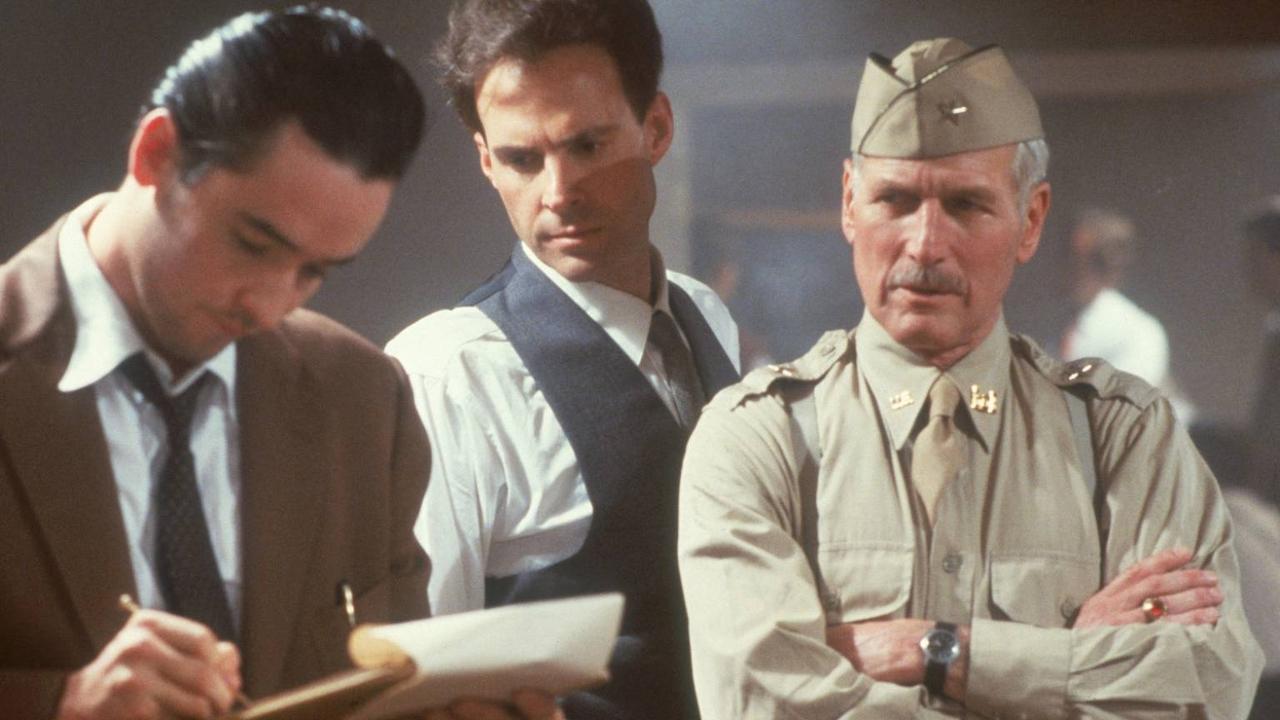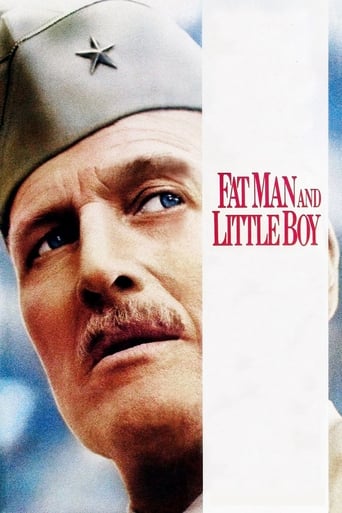

Dreadfully Boring
... View MoreI am only giving this movie a 1 for the great cast, though I can't imagine what any of them were thinking. This movie was horrible
... View MoreBlending excellent reporting and strong storytelling, this is a disturbing film truly stranger than fiction
... View MoreA great movie, one of the best of this year. There was a bit of confusion at one point in the plot, but nothing serious.
... View MoreThis rendition is as about as far from the historical reality of the Manhattan Project as a docudrama can get. It's not only a bad movie, but it's almost as far from the truth as one can get. If you want to see a genuinely accurate depiction of the true story of the Manhattan project, as well as being a terrific movie in its own right, watch "Day One" instead with Brian Dennehy playing a realistic General Groves and Michael Tucker (of "L.A. Law" fame) playing an excellent portrayal of Leo Szilard, the true genius behind the bomb. Now that movie is as true to life as any historical movie I've seen. This one, however, is one best skipped.
... View MoreThe director and co-writers of 'The Killing Fields' condense the 19-month Manhattan Project into a confrontation between the freethinking scientific community and the more pragmatic military mind, represented on one hand by physicist Robert Oppenheimer and on the other by General Leslie Groves, who staked his career on not only getting the atomic bomb built but doing so before the war could end and thus make the project redundant. By necessity the film has to skim over too many fascinating moral debates; nineteen months is a lot of ground to cover, especially with so much valuable screen time wasted on romantic subplots. But even dodging some vital issues the film still presents a tense, tidy historical drama, and Paul Newman's performance as General Groves may be the best portrayal of a military man since George C. Scott ran roughshod over the krauts in 'Patton'. The title, by the way, refers to the nicknames of the A-bombs eventually used on Japan and not, presumably, to the film's two protagonists.
... View MoreIf you know anything about the Manhattan Project, you will find "Fat Man and Little Boy" at least an interesting depiction of the events surrounding that story. The film is in all ways a very realistic portrayal of these events, and in many ways it is almost too real (such as some scenes involving radiation poisoning). Paul Newman, as usual, is brilliant in his role and always manages to come off like a real person on the screen. The supporting cast, such as John Cusack, Laura Dern, Bonnie Bedelia, and Natasha Richardson, is fairly good as well. This film is not, however, one of the best examples of turning a true story into a movie. Great films are able to take a true story and use just enough artistic license to keep its audience engaged for the entire movie. This one, however, tends to drag a bit throughout, and some scenes (such as John Cusack and Natasha Richardson's love story) could have been eliminated entirely without causing the film to lose much. Nevertheless, there are enough interesting facts and tiny humorous bits to at least keep the audience interested enough to see the entire film. It does not always entertain, but as far as great depictions go, this is very accurate, fascinating, and will leave the audience with something to think about.*** out of ****
... View MoreSix stars for Paul Newman's portrayal of General Groves, negative four for the inclusion of a highly fictionalized event where the truth is well documented. Michael Merriman did not really exist. His character--or at least his fate--is based loosely on that of Louis Slotin, a Canadian physicist who did not come to Los Alamos until after the war. He conducted his lethal "tail of the dragon" experiment in May 1946. This is a critical point. The effects of hard radiation on the human body were not known until they were observed in the victims of the Hiroshima and Nagasaki blasts. Had anyone died of radiation poisoning at Los Alamos before the Trinity test, it's very possible that the scientists would have abruptly stopped their work, and history would have been changed. Whether for the better or the worse we can only speculate. Someone should ask the producers and the director whether they added Merriman's character for dramatic effect or to deliver an anti-nuclear message. For a more even-handed and accurate treatment of events at Los Alamos during the Manhattan Project, see the TV movie, "Day One," or better yet, read the Peter Wyden book on which it is based.
... View More